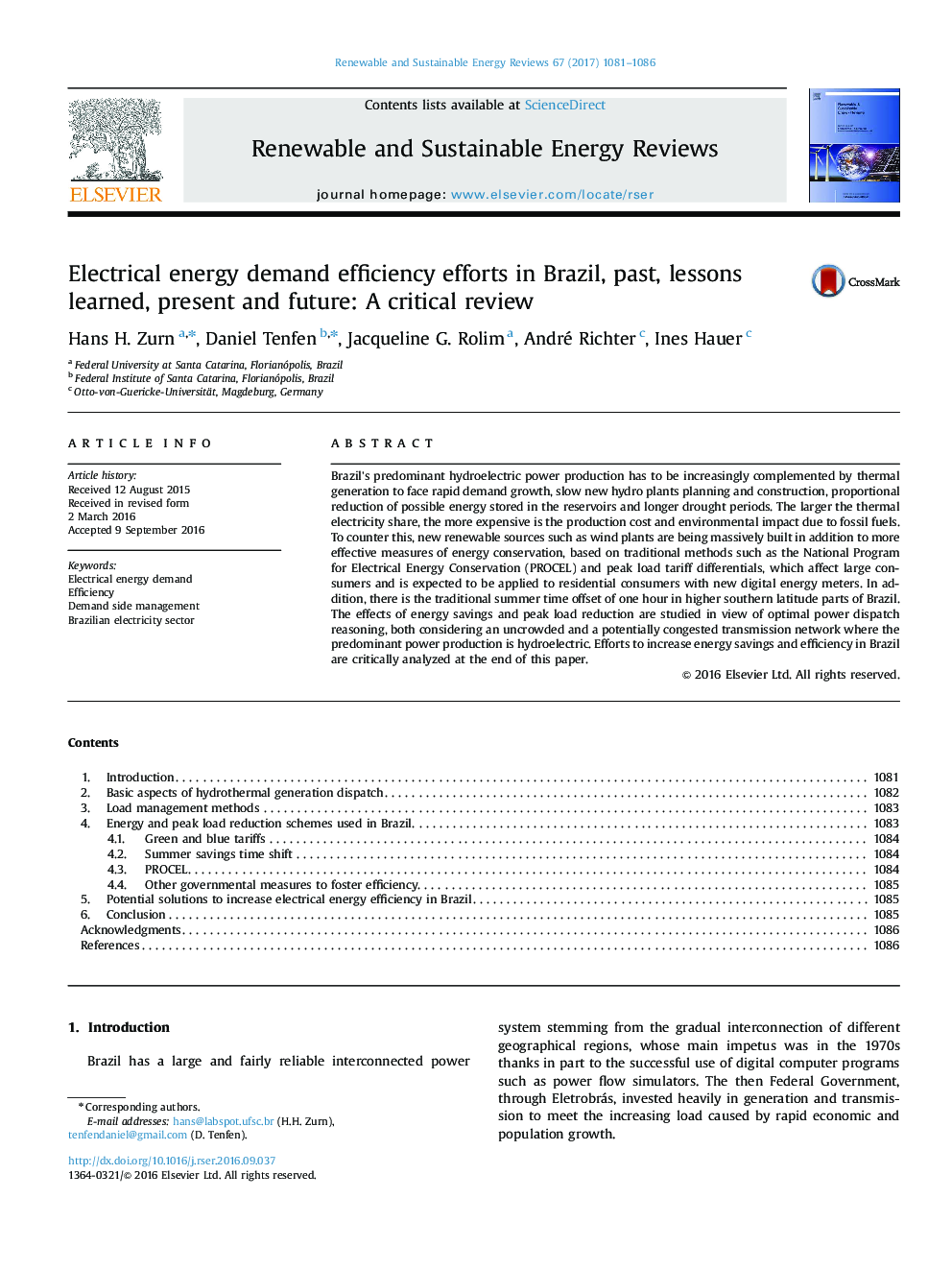| Article ID | Journal | Published Year | Pages | File Type |
|---|---|---|---|---|
| 5482789 | Renewable and Sustainable Energy Reviews | 2017 | 6 Pages |
Abstract
Brazil's predominant hydroelectric power production has to be increasingly complemented by thermal generation to face rapid demand growth, slow new hydro plants planning and construction, proportional reduction of possible energy stored in the reservoirs and longer drought periods. The larger the thermal electricity share, the more expensive is the production cost and environmental impact due to fossil fuels. To counter this, new renewable sources such as wind plants are being massively built in addition to more effective measures of energy conservation, based on traditional methods such as the National Program for Electrical Energy Conservation (PROCEL) and peak load tariff differentials, which affect large consumers and is expected to be applied to residential consumers with new digital energy meters. In addition, there is the traditional summer time offset of one hour in higher southern latitude parts of Brazil. The effects of energy savings and peak load reduction are studied in view of optimal power dispatch reasoning, both considering an uncrowded and a potentially congested transmission network where the predominant power production is hydroelectric. Efforts to increase energy savings and efficiency in Brazil are critically analyzed at the end of this paper.
Related Topics
Physical Sciences and Engineering
Energy
Renewable Energy, Sustainability and the Environment
Authors
Hans H. Zurn, Daniel Tenfen, Jacqueline G. Rolim, André Richter, Ines Hauer,
